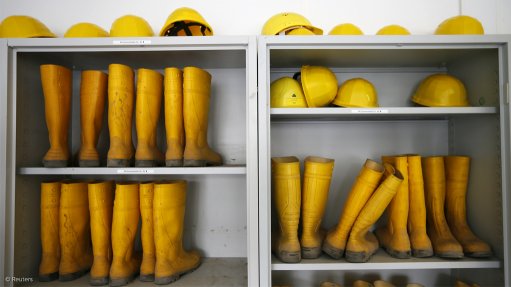
Photo by: Reuters
PERTH (miningweekly.com) – The resources sector will need to take an innovative approach to attracting and retaining skilled workers, federal Resources Minister Madeleine King says.
Speaking at a Western Australian Chamber of Commerce and Industry event, King noted that many Australians held a poor perception of the resources industry, and some remained unaware of how the resource sector was improving lives, including helping to reduce emissions.
“We all know the resources workforce is already stretched and there is a major problem in attracting and retaining skilled workers. A big barrier to attracting these workers is the attitude many young Australians hold towards the resources industry.
“Enrolments in relevant degrees are dwindling, making it even harder to find qualified staff in this time of skills shortages.
“We need to be able to convince more young people and more women that attractive careers can be found in the sector. Workplaces need to be made safer and more welcoming. Women make up only 18% of the sector’s workforce and one obvious way we can bring in the needed skills is to increase the intake of capable women,” King said.
The Minister said that it was up to the industry to turn the poor perceptions around, and to lure a generation of TikTok and Minecraft users to pursue a career within the resources sector.
“Surely we can turn the Minecraft crazed kids of today into the skilled staff the resources industry needs for tomorrow? More seriously there is an immediate need to target the skills that are in demand such as mining engineers, electricians, plumbers and mechanics, but we must also plan for the future of work.
“As the resources sector continues to develop and evolve, workers will require a new set of skills to meet industry needs, including through the transition to net zero emissions,” she added.
King said that the global target of net zero would be unachievable without the resources sector, that Australia could be a clean energy superpower, and that unlocking the full potential of its critical minerals endowments was a core part of that.
“This is among the most valuable contributions we can make to achieve the global Paris goals. Developing our critical minerals will also drive domestic economic growth through creating regional jobs, building domestic industries and strengthening international partnerships,” King said.
“But many people do not realise how important mining will be in the emissions reduction process. For the world to achieve the global Paris goals, low emissions technologies will need to be adopted across all sectors of the world’s economies.
“Critical minerals are the foundation for most, if not all, of these technologies, including electric vehicles, batteries, solar, hydrogen electrolysers and the computer processors we will need run more efficient engery networks.
“Australia’s metallurgical coal, copper, iron-ore and nickel are also crucial to the wires, batteries and magnets that power clean energy technologies. Our challenge is to scale up supply of the minerals the world needs to make these technologies. That’s where the world-leading experience and expertise of this sector will play a prominent role,” King noted.
The Australian resources sector is so huge that it is essential to the world’s clean energy transition. Think about that for a moment. It is an extraordinary opportunity and a remarkable responsibility.
“Our nation is endowed with an abundance of critical minerals. Australia produces about half the world’s lithium, is the third-largest producer of cobalt and the fourth-largest producer of rare earths.
“The government is working with our international partners, state and territory governments and industry to position Australia as a world leader in exploration, extraction, production and processing of critical minerals.”
King noted that the recent National Jobs and Skills Summit raised the importance of a stronger industry link with the university sector, along with the roll of skilled migration for the sector.
The summit produced an agreement to increase the permanent Migration Program ceiling to allow for 195 000 migrants to help ease widespread, critical workforce shortages.